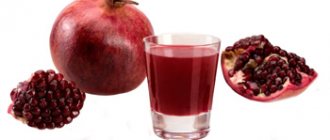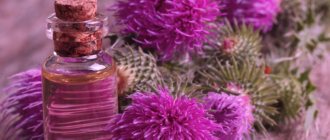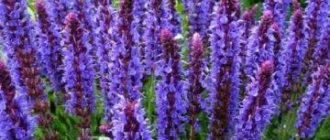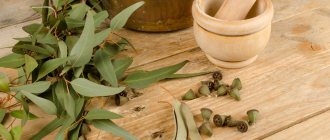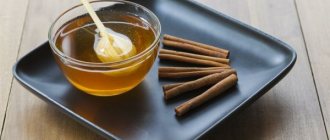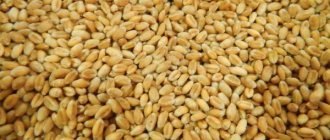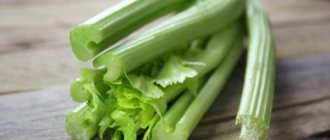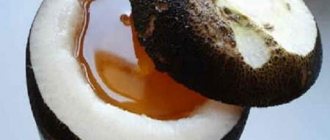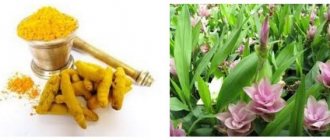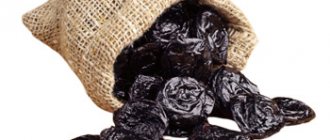What kind of tea is this, its history
Turks are very fond of pomegranate tea, and it is often what tourists bring from vacation for tea at home. In this regard, this type of “souvenir” products is produced in Turkey on an industrial scale.
There are several varieties of this tea. This can be a tea leaf soaked in pomegranate juice, or a powder consisting of a soluble ground tea-pomegranate mixture. You can also buy packages with dried flowers of the plant; pomegranate peels are also used.
Not everyone knows, but Türkiye has its own tea plantations. The first attempts at growing tea were made in the last years of the 19th century. However, they were not successful. Only in the 20s of the 20th century did Ataturk pass a law on the creation of new tea plantations on the eastern coast of the Black Sea near the city of Rize. This place is the birthplace of Turkish tea today.
Events at the beginning of the 20th century became a difficult stage in the history of the country. The Turks had to give up their favorite coffee because of its high cost. It was replaced by tea grown on Turkish soil, to which local residents began to add pomegranate (its juice). This combination of ingredients made it possible to obtain an amazing drink, which is currently ranked among the national ones.
How to choose a pomegranate
Fans often confuse hibiscus and pomegranate tea.
This is not surprising, because the drinks have the same ruby hue and a pleasant taste with a slight sourness. Pomegranate tea and hibiscus tea, the differences of which are invisible at first glance, actually have nothing in common. Pomegranate tea is made from dried pomegranate peel, flowers, leaves, and fruit juice. It has its own valuable qualities and contraindications. Hibiscus thins the blood, so nutritionists warn against excessive infusion. 3 cups a day is enough. And why else? There are many other herbal drinks, the reasonable use of which will bring pleasure and diversify the daily menu.
Pomegranate is considered a very valuable fruit in the Middle East, and this is due to many factors. It has a rich supply of useful properties. In the countries of Transcaucasia and Asia Minor (Azerbaijan, Turkey, Iran, Syria, etc.), the consumption of pomegranates is very high. All parts of the fruit of this plant are used in the production of a healthy and aromatic drink - pomegranate tea.
Türkiye has long owned its own plantations where tea grows. Cultivation first began at the end of the nineteenth century, then there were the first attempts that did not end in success. In the twenties of the twentieth century, a bill was issued regulating the tea plantations that were located near the city.
Rize on the Black Sea. This place is considered the cradle of Turkish aromatic tea. Events at the turn of the twentieth century became difficult in the history of the country. Turkish residents abandoned the coffee drink because of its high cost. It was replaced by home-grown tea, which was later diluted with pomegranate juice. The tandem of these ingredients formed a drink of incredible taste, which over time became a national treasure.
Pomegranate is a fruit in demand among Eastern people. Taste and usefulness added to its value and all-encompassing love. Pomegranate is used not only in the classical sense, but also becomes the main ingredient in various teas and other healthy drinks. The following parts of the fruit are used: peel, inflorescences, leaves and entrails, grains.
Pomegranate nectar is similar in appearance to hibiscus - a tea made from the petals of hibiscus and Sudanese rose. They are similar precisely in their red color and sour taste. There are no more intersections. Sometimes in oriental bazaars they try to sell whole hibiscus flowers to inexperienced tourists under the guise of pomegranate tea, but these plants have nothing in common. Dried pomegranate flower looks completely different.
Hippocrates spoke about the healing properties of pomegranate extract. Avicenna, an Eastern thinker and scientist, was the first to study the beneficial qualities of pomegranate in tea. Pomegranate tea is used to strengthen the immune system and saturates it with a vitamin complex. Among the people, the drink is often used to prevent and treat colds and viruses.
Pomegranate is rich in vitamin C, and this, in turn, helps in strengthening the body and fighting germs. Another advantage is considered to be an increase in hemoglobin levels and strengthening of the heart and blood vessels. Some people use it to prevent diarrhea. Do not forget about the cosmetic effect of the fruit. After it, the skin becomes elastic and smooth, and is also cleansed of unnecessary substances.
Tea made from its flowers is useful for those who often suffer from sleep disorders, neuroses and stress. He plays the role of a calming assistant. Pomegranate tea has a positive effect on the human body. This action is expressed as follows:
- removes dangerous toxins, harmful waste;
- has a beneficial effect on metabolism;
- fights inflammation in the kidneys, liver, as well as in the mucous membranes of the eyes and ears;
- relieves inflammation in joints;
- stimulates the immune system, activating resistance to various viruses and diseases;
- raises the level of hemoglobin in the blood;
- prevention of the formation of a malignant degree in the mammary glands;
- promotes hematopoiesis;
- prevention of diseases associated with digestion;
- acceleration of recovery from pneumonia, sore throat, bronchitis, stomatitis and so on;
- calms the nervous system, stabilizes a person’s psychological state;
- normalizes the condition of the skin and hair;
- prevents atherosclerosis;
- protects the heart.
The seeds of the plant have a beneficial effect on the production of hormones and also keep blood pressure at a normal level. An important property for the female body is the blocking of painful menstruation and menopause. The astringent effect has a positive effect on healthy sleep and the fight against stress.
Pomegranate tea is prepared by collecting and drying individual components of the plant. This is followed by grinding until fine. The contents are added to any type of tea. The mixture is diluted in boiling water and brewed for five minutes or using steam bath technology. It can be consumed both hot and cold.
By the external data of the fruit you can determine its quality. When choosing a pomegranate, you should pay attention to the following parameters:
- no damage to the peel;
- density is uniform on the upper part of the fruit;
- unripe fruit is lighter than ripened fruit;
- the color should be saturated without green additions;
- the peel is a little dry;
- a pattern is visible on the surface.
Ripe fruit has a pronounced sour and sweet taste. The quality of the fruit directly affects its usefulness in use. Care and observation when choosing a product will allow you to get the greatest effect.
1. Mix tea leaves and pomegranate inflorescences in equal proportions;
2. take 1 tsp of the resulting mixture;
3. pour boiling water (two hundred and fifty milliliters);
4. leave for fifteen to twenty minutes, covering with a lid or towel;
5. filtration from thick mass.
•Make a steam bath: two small kettles are placed on top of each other, a fire is lit under the lower one;
•the lower teapot is filled with water;
•the top one is filled with tea leaves and grains;
•after boiling, pour boiling water into the mixture in the upper kettle;
•the lower teapot is filled with water again;
• after boiling, leave the drink for five to seven minutes to allow it to simmer.
If you add lemon or lime, as well as mint and cinnamon, the drink will become more sophisticated. Sugar and honey will dilute the sour taste.
•remove the skins from the fruit;
•clean them of unnecessary components (layers);
•dry the mixture using an oven or naturally;
•turn the crusts into a fine powder;
• half a tsp of the composition from the crusts and a little tea, preferably green, are brewed in boiled water (two hundred milliliters);
•infusion for ten minutes.
Turkish pomegranate tea can be prepared from inflorescences, fruit peels, partitions, berry grains and freshly squeezed juice; all components have medicinal properties.
What is good for the body:
- Thanks to its diuretic effect, it lowers blood pressure in arterial hypertension.
- Improves appetite.
- Calms nerves, relaxes and eliminates insomnia.
- Raises hemoglobin levels.
- Active against inflammation of the mucous membranes.
- Enriches the blood with oxygen.
- Removes toxic substances and eliminates toxins.
- Has an anti-carcinogenic effect.
- Promotes wound healing.
- Serves as a prevention of atherosclerosis.
- Improves the functioning of the cardiovascular system.
- Disinfects the oral cavity and pharynx for purulent-inflammatory diseases.
- Has a choleretic effect.
- Due to antioxidants, it slows down the appearance of age-related changes.
- Eliminates dullness of hair and skin.
- Has an antiviral effect.
Pomegranate tea, the benefits of which have been proven by numerous studies, is able to restore the body after serious illnesses. It can replenish strength and energy after physical or mental labor.
The drink is useful for people living in areas with radioactive effects and working with chemicals. Pomegranate is able to remove radionuclides, ridding the body of bad influences.
There are different compositions of pomegranate drink; preparation methods and taste may differ significantly.
Turkish
In Turkey, tourists are offered to purchase ready-made powder from natural ingredients:
- tea leaves;
- peels and partitions;
- grains
This composition is classic. When choosing, you should pay attention to what kind of tea is included - green or black, this significantly affects the taste of the drink.
To prepare, just dissolve 1 teaspoon of the mixture in boiling water. Can be drunk both hot and chilled. Ideally quenches thirst in hot weather.
Egyptian
This is what people call pomegranate tea bought at the Egyptian Bazaar in Istanbul. To ensure that the quirky traders sell real pomegranate tea, the market should be visited at sunrise. Turks love early buyers, so they can not only give a good price, but also sell a quality product.
Tea leaves soaked in pomegranate juice are popular. This tea is brewed in the usual way, adding a slice of lemon, sweeteners in the form of honey or sugar.
From grains
Tea made from pomegranate seeds is not too tart, but has a pleasant sourness. You can diversify the classic recipe with new ingredients. We suggest you try orange-pomegranate winter tea.
You will need:
- water – 1 l;
- seeds of 1 large pomegranate;
- orange – 1 pc.;
- cinnamon – ½ tsp;
- loose leaf green tea – 1.5 tbsp.
- sugar to taste.
- Grind the pomegranate seeds in a blender into a paste.
- Cut the orange into large slices.
- Heat water in a saucepan, add cinnamon, tea leaves, and sugar. Boil for 3-4 minutes.
- Add citrus and pomegranate pulp to the pan and cook for 2 minutes. Remove from heat.
- Let the tea steep for 15 minutes and strain.
This drink tones and warms well.
With juice
The easiest way to treat yourself to an original tea drink is to prepare it with the addition of pomegranate juice and lemon.
For 0.5 liters of water you will need:
- tea leaves – 2 tsp. or 3 grams;
- pomegranate juice – 0.5 l;
- lemon – ¼ fruit.
- Brew strong tea.
- Add finely chopped lemon and leave until completely cooled.
- Strain the cold brew and mix with freshly squeezed juice.
Benefits and harms
Regardless of the variety, natural pomegranate tea from Turkey (or prepared at home) has a number of beneficial properties. Let's look at the main ones.
What are the benefits of pomegranate tea and its properties?
The benefits of a tea drink with pomegranate are due to the fact that it has bile- and diuretic, anti-inflammatory, bactericidal, astringent, analgesic, tonic and antioxidant effects. This tea:
- Helps improve the immune system, especially effective during ARVI epidemics. Disinfects the oral cavity, can be used as an aid for sore throat, pharyngitis, stomatitis, etc.
- Leads to strengthening of vascular walls and lowering cholesterol levels. Helps with anemia, because... increases hemoglobin in the blood.
- Improves the functioning of the digestive system. It should be remembered that Turkish pomegranate tea with the addition of fruit peels has an astringent effect, so it can be used for diarrhea. The drink also helps cleanse the body.
- Useful in the treatment of thyroid diseases.
- Helps fight stress and nervous tension.
- Can be used to prevent cancer (especially if it contains pomegranate seeds).
- It has a beneficial effect on skin and hair, making it healthier and more beautiful.
Contraindications
Tea with pomegranate will be harmful if contraindications are neglected. Among them:
- allergy to ingredients in the composition;
- peptic ulcers, gastritis, pancreatitis;
- predisposition to constipation;
- breast-feeding.
Beneficial properties of pomegranate drink
Selling tea in Turkish markets
The healing properties of pomegranate have been known since ancient times. The fruit and its flowers contain so many useful substances that in Turkey it is called the “magic fruit”. Pomegranate tea retains all the beneficial properties of the fruit; it is a real healing nectar containing such useful substances as:
- Vitamins C, B1, B2, B6, B15 and PP.
- Microelements: phosphorus, manganese, copper, potassium, chromium, calcium and iodine.
- Fifteen amino acids, of which six are essential.
- The most important organic acids.
- Flavonoids, fiber, essential oils and tannins.
The list of benefits of the fruit and drink is quite impressive.
The list of beneficial and medicinal properties of pomegranate tea is truly impressive. It not only perfectly quenches thirst and refreshes on a hot day, but also provides a whole range of beneficial effects.
Regular consumption of the drink is recommended for women of any age, because the vitamins and minerals it contains improve the condition of the skin and hair. In addition, it has a beneficial effect on the parameters of the figure.
Experts advise regular consumption of pomegranate for people employed in hazardous industries and working in high radiation environments, because the fruit does an excellent job of removing toxins and radionuclides from the body.
Tea is useful during the cold season, because it is rich in vitamin C, strengthens the immune system and has a warming effect.
The essential oils contained in the fruit have a positive effect on the nervous system, relieve nervous tension and stress, help to calm down and fall asleep.
Another well-known beneficial property of pomegranate is to increase hemoglobin levels, so the drink is indicated for anemia.
Helps well with anemia, as it promotes hematopoiesis
Turkish tea has a beneficial effect on the heart, normalizes blood flow and lowers blood pressure.
The fruit also has a positive effect on thyroid disease and is indicated for tuberculosis and type 2 diabetes.
Fruit seed tea prevents the growth of cancer cells
The substance contained in the seeds prevents the growth of malignant tumors, so regular consumption of infusion of pomegranate seeds is a good prevention of cancer. In addition, its use is useful for hormonal disorders.
Tea with pieces of pomegranate peel has an antiseptic effect and has an astringent effect, so its use is indicated for stomach upsets and diarrhea.
Use during pregnancy
The question of whether pomegranate tea drink can be consumed during pregnancy is controversial. A number of sources indicate that this period in a woman’s life is a contraindication to taking this tea, but there is also information about its benefits for a pregnant woman.
For example, it can help replenish iron in the body of the expectant mother and have a positive effect on hemoglobin levels. This is an important property of pomegranate tea, because... A frequent “companion” of pregnancy is iron deficiency anemia. At the same time, this slightly sour drink has an astringent effect, which can cause constipation in a woman, which often accompanies a pregnant woman anyway.
In addition, pomegranate tea can cause other undesirable consequences. Therefore, during pregnancy you should not drink it every day. But a couple of cups a week is unlikely to do any harm. However, it is better for the expectant mother to get a doctor’s opinion on the issue of taking this drink.
Why is pomegranate tea harmful?
Like most other natural drinks and medicines, tea made from pomegranate peels, juice or flowers, while providing great benefits to the body, can also cause harm if used thoughtlessly. It may be caused by the same reason as the benefit - a rich content of nutrients. If you abuse tea, an overdose may occur, which will manifest itself in the following symptoms:
- dizziness;
- nausea;
- increased blood pressure;
- convulsions;
- blurred vision.
Due to the high content of various acids, pomegranate tea in large quantities can cause deterioration in the condition of teeth, as they destroy the enamel.
Despite the fact that pomegranate has long become a familiar berry for most people, it still remains an exotic fruit, and therefore can cause allergic reactions. If you are individually intolerant to pomegranate, tea based on it should also be avoided.
The following diseases are considered contraindications to drinking pomegranate tea:
- stomach or duodenal ulcer;
- pancreatitis;
- gastritis with high acidity.
People prone to frequent constipation should also be extremely careful with this tea.
Increases or decreases blood pressure
When taking any tea, many people wonder: “does this drink increase or decrease blood pressure?” The answer lies in the composition. For example, tea made from pomegranate flowers or pomegranate peels (without adding tea leaves) leads to a slight decrease in blood pressure.
Substances included in the fruit (polyphenols) help break down fats, reduce the content of “bad cholesterol” and gradually dissolve plaques. Blood vessels become “clean”, heart rhythm normalizes. The diuretic effect inherent in pomegranate and drinks made from it ensures the removal of excess fluid and, accordingly, the reduction of edema. All these properties cause a decrease in blood pressure.
If a person is in a state of hypertensive crisis, then no pomegranate tea or juice will help him! In such a situation, you cannot do without medications and the help of a doctor.
It is more difficult to answer the question about the effect of the pomegranate-tea mixture in powder on pressure, because it contains both parts of the fruit and black tea. The latter is often contraindicated in hypertensive patients. Therefore, most likely, a drink made from powder will not have any significant effect on blood pressure, because... the ingredients “neutralize” each other’s effects.
What's the benefit?
Knowing the benefits of pomegranate peel, you can seriously approach menu design with this product. Methods have now been developed for using all parts of the berries in cooking, and the peels are more suitable for healthy recipes than for gustatory pleasure. This is due to the following qualities:
- the ability to fight inflammation and infections;
- activation of the immune system, development by the body of the ability to resist pathogenic microscopic forms of life;
- stimulation of kidney function, due to which tissues are faster cleared of toxins;
- normalization of stool during diarrhea;
- initiation of bile production processes.
How to brew pomegranate tea from Turkey
The most popular version of pomegranate tea from Turkey is its instant powder form, which contains natural ingredients. To prepare 1 serving of the drink, you only need 1 tsp. mixtures and hot water (1 tbsp.).
Additional Information! This powdered mixture consists of instant black tea, dried and ground pomegranate seeds (grains) and, in some cases, also its skin or partitions. As a rule, in the production of this powder, the Turks do not resort to the use of preservatives, because this leads to increased costs.
How to brew pomegranate tea from Turkey if these are flowers and leaves of an exotic plant? The recipe is simple. 1 tbsp. dried raw materials are poured with a glass of boiling water, the container is wrapped, for example, in a towel and left to infuse for about 15 minutes. Then the drink is filtered and drunk.
You can make pomegranate tea at home. Below are several ways to get a tasty and healthy drink.
From grains
Of course, it is most correct to brew such tea following traditional Turkish technology. It uses a water (steam) bath.
You will need two vessels (teapots) with such a design that one can be placed on top of the other. You need to pour water into the lower one, and place your favorite tea leaves and pomegranate seeds into the upper one. This vessel is placed on the first one with water. When it boils in it, the tea and pomegranate are poured with boiling water. The top teapot is closed, and the contents simmer in it for about 5 minutes. The drink is ready (you can also cool it and strain it).
With juice
This is a simpler way to prepare a drink.
Granulated sugar is added to the tea brewed in the usual way (it can be green or black). After the drink has cooled a little, slightly warmed pomegranate juice is added to it. The recommended ratio is 1:1, but the ratio may vary depending on personal preference. To give the tea-pomegranate drink a fresh note, you can add mint.
From crusts
Pomegranate peels are used less frequently in tea preparation. Despite this, you can find quite a lot of recipes, the variety of which is given by a variety of ingredients. To get one of these drinks, you need to take pomegranate peels, mint, ginger root, cumin seeds, green tea and honey:
- The listed components (except for honey) are ground in a coffee grinder to a powdery mass.
- 1 tsp of this mixture is poured 1 tbsp. hot water, bring to a boil and simmer on the stove for an additional 1 minute.
- The fire is turned off and the drink is infused for 5 minutes. Then it is filtered. A spoonful of honey is added to the finished tea.
Tea with pomegranate juice can be drunk cold, while mint and lemon will add variety to the taste. How to prepare such a refreshing drink, watch in this video:
What is this tea made from in Turkey?
The juice, seeds, peel, leaves and petals of the plant are used for tea.
Pomegranate is usually added to black or green tea. You can make petal tea from the fruit, and pomegranate juice is most often used as an additive, but you can also add pomegranate peel, flowers and even seeds:
- The infusion from the flowers of the fruit is similar in color and taste to hibiscus tea - a drink made from the flowers of the Sudanese rose.
- Tea with pomegranate peel is fragrant, with a tart taste and bright aroma.
- The drink with the addition of fruit juice has a rich red color and a pleasant fruity taste with noble sourness.
Honey, sugar or fructose can be used as a sweetener.
In Turkey, you can buy the drink both in the form of regular tea and as a powder concentrate, which can be added to black or green tea, or brewed yourself.
What is the difference between hibiscus and pomegranate tea?
Hibiscus and pomegranate tea have similar taste qualities; similarities can be found even among their beneficial properties. However, these are different drinks, although they are both popular in Turkey. Hibiscus is a herbal tea that is produced from the peri-floral parts of the Sudanese rose, a plant belonging to the Hibiscus genus.
Thus, the main difference between these drinks is that they are made from completely different raw materials.
Hibiscus
Medicinal properties of pomegranate peels
The chemical composition of pomegranate peel infusion is represented by fat- and water-soluble vitamins, bioflavonoids, organic acids, micro- and macroelements: calcium, iron, phosphorus, zinc, manganese and magnesium. But the main therapeutic effects for diarrhea are provided by tannins. They indirectly reduce the production of prostaglandins, which stimulate the motility of the smooth muscle of the intestinal wall.
The well-being of a person suffering from diarrhea also improves thanks to the following effects of pomegranate peels:
- reduce the secretion of mucus in the intestines, which slows down the passage of feces through it;
- increase the tone of the anal sphincter, preventing defecation;
- inhibit the growth and reproduction of pathogenic microorganisms in the gastrointestinal tract, which often provoke peristalsis disorders;
- gently stop low-grade inflammatory processes, reduce the severity of pain;
- form a film on the mucous membranes that protects them from damage.
The beneficial properties of dry pomegranate peels are in great demand in folk medicine. For diabetes mellitus, infusions are prepared based on them to lower blood sugar levels. Pomegranate peel is used in the treatment of hypoacid and atrophic gastritis at the stage of remission. It is used as part of a complex treatment of respiratory viral infections due to its immunostimulating activity.
Greenfield pomegranate tea
Today in any supermarket you can buy different teas, the taste of which, as manufacturers claim, is original and multifaceted. One of them is Greenfield with pomegranate, or Greenfield Grand Fruit. It does not contain dried pomegranate flowers. It consists of black tea, hibiscus, rosemary, pomegranate peel and pomegranate flavoring, and not a word is said about the naturalness of the latter.
Reviews about this type of Greenfield are different, its rating ranges from 3 to 5 points on various sites. The cost of a package of 25 sachets is approximately 62-67 rubles.
It’s incredibly pleasant to sit in some cafe by the sea in Turkey and enjoy sweet and sour pomegranate tea in a traditional cup. However, you can enjoy this drink in your homeland. To do this, you just need to use one of the recipes given above.
Features of using pomegranate peel
Pomegranate skin is a truly healthy product, rich in vitamins and substances necessary for the human body. In order to further preserve all the useful components in this product, it is necessary to properly prepare and store pomegranate peel, using some rules:
- You need to choose dense fruits with peels without much damage.
- When drying crusts, you need to stir them regularly to ensure uniformity of the process.
- Before drying, the crust must be divided into small pieces and dried naturally - leaving it on gauze for a week.
- The color of the pomegranate peel should be even and natural.
In folk medicine
Naturally, with such beneficial qualities and properties of pomegranate peel, it is also very popular in folk medicine. The peel can really cure some diseases and improve human health, the main thing in this matter is to follow precautions and the proportions of recipes.
Tea with pomegranate peels
For this tea you need not too large pieces of pomegranate peel. But whether it is fresh or dried is not so important. Tea from the peels turns out tart, so it would be better to dilute them with lemon peel, lemon balm, mint or any other herb. This tea is brewed just like regular tea.
Important! Those people who regularly consume pomegranate peel tea have noticed that their skin, nails and hair have improved.
This tea will help cope with stress and nervous shock. It will help in the fight against insomnia, aggression, anxiety and depression. A decoction for diarrhea and gastrointestinal disorders. The best and fastest way to get rid of diarrhea and gastrointestinal upset is to make a decoction of pomegranate peel.
The recipe for this decoction is simple - 1 tablespoon of crushed dry pomegranate peels is poured into 0.5 cups of boiling water. Next, the mixture needs to be boiled for 10 minutes, and then left in a thermos for 3 hours so that the broth has time to infuse. You need to take this decoction 3 times a day, 100 ml.
For sore gums, throat and inflammation in the mouth
For sore throat gums and inflammation in the mouth, eating pomegranate peels has an anti-inflammatory and disinfectant effect. For such a decoction we will need 30 grams of pomegranate peel. They need to be filled with 300 ml of water. Next, the resulting mixture must be boiled for six to seven minutes, and left to infuse for an hour, then strain.
You need to rinse your mouth with this decoction five to six times a day. It usually takes six days for complete healing.
Other types of inflammation
Pomegranate peel can also help with other types of inflammation. For example, inflammation of the reproductive, genitourinary systems, and gastrointestinal tract. The medicine is prepared as follows: the crushed peel of the fruit must be poured with boiling water and placed in a steam bath for about 1 hour. Next, the liquid must be carefully poured.
This medicine should be taken before meals, 2 times a day, 60 ml of decoction.
Pomegranate peels for parasites
Pomegranate peel is effective in fighting parasites due to its alkaloid content.
Attention! Pomegranate peels are widely used not only in the destruction of parasites, but also in the prevention of helminthiasis.
Pomegranate skin destroys parasites such as:
- Cucumber tapeworm.
- Pork tapeworm.
- Bull tapeworm.
- Small tapeworm.
- Spirometer.
- Wide tape.
For this decoction you will need approximately 50 grams of chopped fresh or dried peel. It needs to be filled with 400 ml of water at room temperature and left to steep under the lid for several hours (about 6 hours). After the allotted time has passed, the resulting infusion must be boiled until the amount of liquid is reduced by half. The resulting broth must be filtered.
The decoction is taken in the morning, on an empty stomach. The entire volume of the decoction must be drunk within an hour, divided into 6-7 times. 30 minutes after taking the decoction, you must take a laxative.
For burns
To relieve burns, you need to take about 5 grams of pomegranate peel and brew it in 100 ml of boiling water. Leave to infuse for half an hour. This decoction should be wiped over the affected areas 3-5 times a day.
In cosmetology
Pomegranate peel is widely used in cosmetology. It is included in creams to remove pigments on the skin of the face and freckles. It is added to various shampoos, as it is able to strengthen the structure of human hair and care for oily hair. The extensive and beneficial composition of pomegranate makes the skin soft and tender.
Mask for the face
Pomegranate peels are used for the face during the hot season. In summer, when the sun's rays harm the skin of the face, a pomegranate peel mask will come to the rescue. It is prepared very simply.
Any cream you use can be used. Grind the pomegranate peels to a powder. Add the resulting powder to the cream and apply to the surface of the face. On the second day, a positive result will be visible. Facial skin will become more delicate, nourishing and brighter.
Decoction for the scalp
The beneficial substances contained in pomegranate provide reliable protection for the scalp. The decoction should be applied once a day, in the evening, before bedtime. It is prepared according to a simple recipe: boil the pomegranate peel in water and leave to steep for half a day. Only after this the decoction can be applied to the hair.
How to prepare raw materials and store them?
The medicinal properties of dry pomegranate peels appear only when they are properly prepared and stored. Ready-made raw materials are not sold in pharmacies, but they can be purchased in the southern regions of the country on markets. But it is best to collect and dry the pomegranate peels yourself. You should choose well-ripened fruits without signs of rotting and with the stalk falling off. A thin rind does not serve as a criterion of poor quality, but indicates the characteristics of the variety.
It’s not difficult to prepare medicine for diarrhea for future use:
- Rinse the pomegranate with warm water. It is advisable to use a brush to completely remove contaminants and preservatives, which are often used to treat fruits before transportation;
- cut the pomegranate, remove the seeds, cut off the dense white layer and partitions from the inner surface;
- cut the peels into strips 0.5-1 cm thick, spread on thick paper;
- dry plant materials in a well-ventilated area, make sure that direct sunlight does not fall on them;
- Turn the crusts over 3-4 times a day to dry evenly.
The benefits of dry pomegranate peel will manifest themselves when the raw material is properly prepared. It is imperative to remove all rotten parts, otherwise there is a high probability of developing digestive disorders and increased diarrhea. You can store pomegranate peels in wax paper bags, cardboard boxes, glass jars or linen bags.
